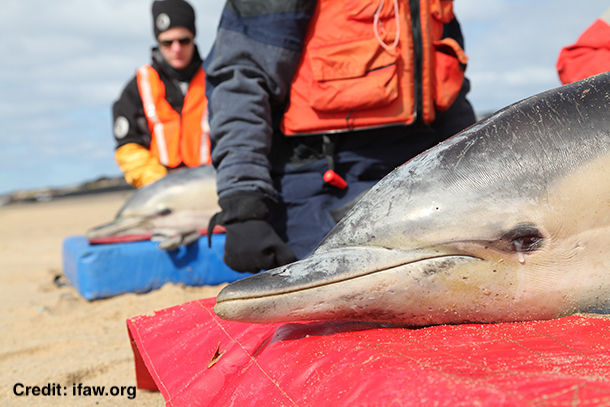
Katie Moore is the Deputy Vice President of Animal Rescue with the International Fund for Animal Welfare. For the past two decades, Katie has been rescuing stranded marine mammals all over the world, leading these initiatives and pioneering methods that have saved thousands that wouldn’t have had a chance before. Through better treatment practices employed by her and her team, successful releases on Cape Cod, Massachusetts, have jumped from under 14% to over 70%. This success is also due to a study she was a part of that challenged the common practice of euthanizing lone dolphins who had stranded. Each individual matters to Katie and she won’t let anything get in her way to save them.
Some highlights from our talk:
(1:38) Why do animals strand?
(14:30) Stranded animals used to be mostly euthanized, but Katie helped to change this.
(18:37) Katie helped to pioneer the world’s first mass stranding program.
(19:44) Other methods improved over the years.
(21:33) How do they release animals?
(23:22) Is it possible to prevent strandings?
(29:09) What to do if you see a stranded or entangled marine mammal?
What you can do to help:
- If you see a stranded marine mammal, it’s best for professionals to handle it (or walk you through how). Here are two resources to find contacts to your local stranding network:
- International Whaling Commission
- NOAA
- Your local fire or police station
Until help arrives, keep people and animals away from the stranded animal(s). And DO NOT attempt to drag the animal(s) back to the water. This can damage their pectoral fins.
- Properly dispose of your trash, especially any kind of netting or fishing line. It sounds like a no-brainer, but entanglement is an ever-growing problem that Katie has had to deal with first hand.
- Volunteer with your local stranding network.
- Donate to the International Fund for Animal Welfare.
Background music by Fearless Motivation Instrumentals: Meaning of Life
WANT FREE STUFF?
Sign up below and every month, as a member, you have a chance to win products that help you reduce your environmental footprint. Plus, you’ll receive the newsletter with the podcast show notes and summarized action tips.

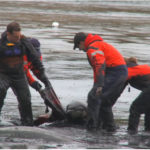
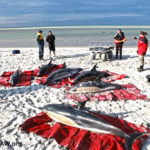
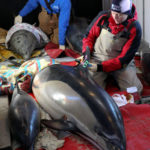
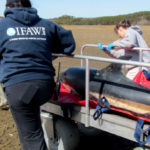
Recent Comments